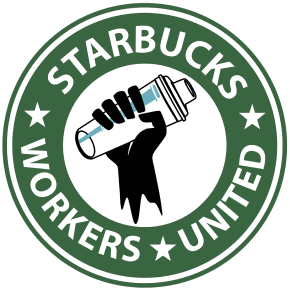The way we work is changing and not because corporate aristocrats are transforming workplace culture. No, this change can be attributed to the millions of workers who have re-ignited the flame of collective action that the wealthiest have been trying to extinguish over the last 40 years. Big ticket stores like Trader Joe’s, those with a seemingly wholesome mission are no exception. The company’s image is used to lure customers into a cave of consumer heaven in order to take advantage of worker’s bodies, time, and emotional capacities. But where oppression exists, expect resistance to follow.
Working at Trader Joe’s: The Last 10 Years
Trader Joe’s is not your friendly neighborhood market. It is a billion-dollar national chain owned by one of Europe’s richest families. The original business strategy was defined by exploiting market inefficiencies and selling straight from the supplier. Their products have always been kitschy, alliterative, and proprietary. And the crown jewel of a Trader Joe’s experience? The delightful crew, greeting you with big smiles and jovial conversation. Workers are “willing” to look up missing items in the TJ’s database and relay the likelihood of return. Crew members “want” to meander over to the snack section with the customer, rip open a box of cheddar rockets, and engage in a side-by-side, real-time sample party. We are more than “happy” to carry your groceries to the car while dazzling you with witty chit-chat.
At 6 a.m. and 10 p.m., the crew restocks the whole store, slinging glasses and hefting boxes from massive pallets for multiple hours without safety precautions, protocol, or guidelines. The crew is then on their feet, often working eight hours a day, all while outputting the emotional labor necessary to “earn the customers’ delight” and “to satisfy their dreams related to our products and their experience,” as per the company handbook. Emotional labor is mandated but unpaid at Trader Joe’s. Earlier this year, a crew member from a store on the Upper West side of NYC alleged their firing was a result of not smiling enough, and there is currently a lawsuit unfolding.
During the pandemic at our store in Evanston, Illinois, colleagues were regularly “taken to the back” to be reprimanded for their bad attitudes. As I joined the crew in late 2020, the company was slashing healthcare benefits and retirement contributions. Our pay was cut moments after lockdown mandates were lifted. We were coerced into hosting space for local community crises such as violence and substance misuse without adequate training or even a policy in place to handle these events unfolding in close proximity. Many “lifers” — crew who had been around for over 10 years — hearkened back to the good old days defined by expectations of biannual raises, cost-of-living adjustments (COLA), and a healthy work environment. The high turnover rates and broken bodies told a different story.
In 2021, whispers of “What can we do?” echoed within and beyond the walls of my small Illinois store. In Hadley, Massachusetts, Maeg Yosef (she/her) has been a dedicated crew member for over 20 years. She now also serves as communications director at Trader Joe’s United. Yosef is someone you can count on, someone who views herself as intimately connected to her co-workers and her community at large. Sarah-Beth Ryther (she/they) is a crew member since 2021 and now vice president of Trader Joe’s United at a store in Minneapolis with a similar ethos and orientation. Across the country, workers like Yosef and Ryther began noticing similar things. They observed clear signs of favoritism and a lack of support rampant in their management’s attitudes and leadership styles. Stores like ours were not just a few bad apples but a product of the corporation’s willingness to profit in the face of a national emergency.
Working at Trader Joe’s: The Early Years
There was a time when Trader Joe’s did pay a livable wage and provided a cost-of-living adjustment. It even had healthcare and retirement benefits that were accessible to all full- and part-time crew members. Trader Joe’s opened its doors for the first time in 1967 as Pronto Market in Pasadena, California. It was here that founder, the OG Trader, Joe Coloumbe, had dreams of an egalitarian brand. This brand would serve its community through affordable products that could not be found in big ticket stores.
In opposition to other grocers of the time, Coloumbe was set on cutting out the “middleman” and selling directly from suppliers. It was a place for artists and creatives to be employed, embracing a flexible lifestyle. Even in 1979, when one of West Germany’s richest families bought the chain, they remained focused on worker prosperity in order to appeal to customers. When Yosef started at the Hadley, Massachusetts, store in 2004, she mentioned the impressive 15% retirement contribution and healthcare benefits for part-timers, which reflected the company’s reputation. Raises were guaranteed four times a year to adjust wages to the ever-increasing cost of living. She described an environment where section leads were connoisseurs of their niche snack items or alliterative canned goods. People were both excited and proud to be on the Trader Joe’s floor.
Working at Trader Joe’s During COVID-19
Then came COVID. It has made many of us question why we are working so hard just for things to get worse and worse. Over 560 Trader Joe’s locations in 190 cities in the US put food on their tables because crew members show up, yet medical leave is unpaid. Workers have been denied healthcare coverage because their hours were too low due to taking maternity leave or even seek cancer treatment.
“The company attitude became transparent,” said Yosef. Trader Joe’s purposefully created a fear-filled environment enforced by the captain and mates in the midst of a global pandemic and potential union momentum. Both Yosef’s and Ryther’s stores had been cultivating deep relationships defined by community care amongst their fellow crew. When it became clear that the corporation’s executives were not interested in hearing workers out about their conditions, the crew understood that talking to each other was the first step in change making. This was in late 2021.
In July 2022, the Hadley location voted 45–31 in favor of unionization, the first unionized store in Trader Joe’s history. By the summer of 2023, the store gathered for community support actions, a walkout, writing letters, making phone calls, and a rally outside of corporate headquarters in Boston. It is no small feat to mobilize a group of people who are overworked and underpaid, both consistently and with passion.
“All we have is our Google Docs and each other,” said Yosef in a conversation we had about the journey to building the independent union, Trader Joe’s United. This kind of organizing is not backed by a legacy organization who can throw their weight around with a lot of funding. Trader Joe’s United has slowly built power through grassroots tactics of reciprocity and solidarity. Interpersonal connection and a common enemy can motivate thousands as we saw from this red-hot year of labor mobilizations. It takes dedicated leaders willing to facilitate conversations outside of working hours. Egos and personality clashes are inevitable, but sticking it out with people you interact with everyday ensures a level of camaraderie and safety only possible when you sit within inevitable conflict.
The Emergence of Trader Joe’s United
The fight continues as crew members across the country emphasize their collective power to enhance the whole labor menu. With this type of devoted togetherness, resilience, and care, workers face major corporations with real skin in the game. We are not alone — you are part of a mass movement of workers demanding a fair share. You are part and parcel of a lineage who said “no” to laboring at the hands of others in unsafe environments as their only identity. You are integral to liberating the “way we work.” And now you can also be part of a group like Trader Joe’s United, where both Yosef and Ryther are weaving webs of care for their fellow workers across the Trader Joe’s map.
They have navigated interpersonal strife while coordinating organized walk-outs and sit-ins. Trader Joe’s United is made up of four stores that have successfully unionized, in Oakland, California; Louisville, Kentucky; Minneapolis; and Hadley. By the crew and for the crew, this dedicated team of six has sat at the bargaining table while also functioning as their own fundraisers, advertisers, liaisons, consultants, resources, advocates, friends, and colleagues.
And while the independent union is seeing success at an incredibly fast rate, progress is slow and steady. Ryther sits at the bargaining table, staring into the faces of the corporations’ highly compensated union-busting lawyers. Multiple allegations have been made towards Trader Joe’s such as their use of coercion, pressure tactics, unwarranted “disciplinary” action especially in the direction of union leadership, and even captive-audience meetings. Ryther has expressed some incremental wins, such as hybrid meetings, which allow for more crew members to be present on Zoom without a travel requirement in place. The company is stalling any attempts to address economic issues. As Ryther would say, this novel is just getting started.
Together, we can organize to face today’s workplace issues hand-in-hand, to demand lasting change in our communities. Beyond the aisles of Trader Joe’s, workers in every industry uncover that unionized workplaces receive statistically higher pay and more autonomy and enjoy a better quality of life than those without collective power in the workplace. Prominent grocery store unions such as UFCW have existed since before the inception of Trader Joe’s. They have safeguarded the labor and livelihoods of their over 800,000 members and have set the bar high.
Workers at Trader Joe’s, Starbucks, and REI have all reached that bar and faced it head-on with impressive devotion. No worker within these organizing committees will ever claim an easy win, but long-term fulfillment and an equitable existence keep us hungry. Start that conversation with a co-worker — you might be surprised at what you find out. The corporate ingredients of alienation don’t stand a chance when workers unite. If you are a crew member, curious about your options, contact an organizer at the Emergency Workplace Organizing Committee. Every crew member deserves recognition for the wealth they have generated, so join the movement and reach out to fellow co-workers at Trader Joe’s United.




